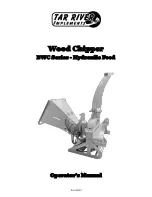
212
YORK INTERNATIONAL
FORM 201.19-NM8 (804)
SECTION 11 - TROUBLESHOOTING GUIDE
Troubleshooting
PROBLEM POSSIBLE CAUSE ACTION
POSSIBLE
CAUSE
ACTION
No display on panel - Main supply to control system OFF. Switch on main supply if safe to do so.
unit will not start
Emergency stop device off.
Check if control panel emergency stop switch
and any remote emergency stop devices are in
the OFF position. Turn to ON position (1) if safe
to do so.
CB3 tripped. Check CB3.
No supply to - T2. Check 115VAC to L & 2.
No 24VAC supply to power board. Check wiring from - T2 to powerboard and fuse.
No +12V output from powerboard.
Replace powerboard or isolate excessive load on
the board.
NO RUN PERM displayed
No liquid
ß
ow through the evaporator.
Ensure that liquid pumps are running. Valves are
(No run permissive) correctly set and
ß
ow is established.
Flow switch contacts are not made.
Check that the
ß
ow switch is functional and is
installed according to the manufacturer’s instructions.
Check cycling
contacts.
SYS # HIGH OIL TEMP Poor air
ß
ow through the condenser Check for air
ß
ow restrictions caused by blockages on
coils. intake faces of air coils.
Measured temperature incorrect. Check oil temp sensor and wiring.
Chiller FAULT: LOW Ambient air temperature is lower Use the ‘ambient temp.’ key to display the
AMBIENT TEMP displayed than the programmed operating temperature and con
Þ
rm that the displayed value is
limit. approximately correct. The warning message should
clear when the ambient air temperature rises above
the programmed operating limit.
Check the programmed settings are correct for the
options
Þ
tted to the unit.
Measured temperature is incorrect. Check ambient sensor and wiring.
Chiller FAULT: HIGH Ambient air temperature is higher Use the ‘ambient temp.’ key to display the
AMBIENT TEMP displayed than the programmed operating limit. temperature and con
Þ
rm that the displayed value is
approximately correct. The warning message should
clear when the ambient air temperature falls below
the programmed operating limit.
Check that the programmed settings are correct for
the options
Þ
tted to the unit.
Resid. heat is not being dissipated.
Check fans are operating correctly and the rotation is
correct. Check for air
ß
ow recirculation.
Measured temperature is incorrect. Check ambient sensor and wiring.
Chiller FAULT: LOW Leaving liquid drops below the Check for restrictions in the liquid
ß
ow line.
WATER TEMP displayed programmed low limit faster than the Check that the liquid
ß
ow is stable.
unit can unload.
Unit is not unloading.
Check the voltage to the unloader valve solenoid.
Check that the compressor unloads correctly.
Measured temperature is incorrect. Check water temp sensor and wiring.
Chiller FAULT: VAC Check main supply is stable and within allowable
UNDERVOLTAGE Poor main supply voltage. limits.
displayed. Check for voltage dip on compressor start.
Flow switch or cycling contacts are
not made.
Recirculated air is affecting the sensor.
Summary of Contents for YCAS Series
Page 43: ...43 YORK INTERNATIONAL FORM 201 19 NM8 804 5 This page intentionally left blank...
Page 45: ...45 YORK INTERNATIONAL FORM 201 19 NM8 804 6 This page intentionally left blank...
Page 77: ...77 YORK INTERNATIONAL FORM 201 19 NM8 804 This page intentionally left blank...
Page 81: ...81 YORK INTERNATIONAL FORM 201 19 NM8 804 LD10047 035 16253 104 Rev D Power Panel...
Page 93: ...93 YORK INTERNATIONAL FORM 201 19 NM8 804 This page intentionally left blank...
Page 147: ...147 YORK INTERNATIONAL FORM 201 19 NM8 804 8 This page intentionally left blank...
Page 205: ...205 YORK INTERNATIONAL FORM 201 19 NM8 804 8 This page intentionally left blank...





































